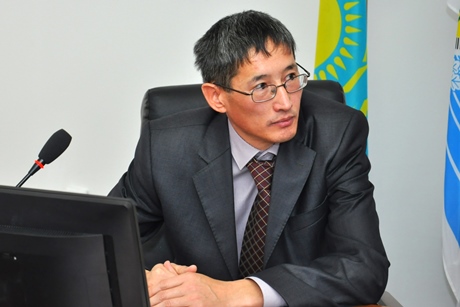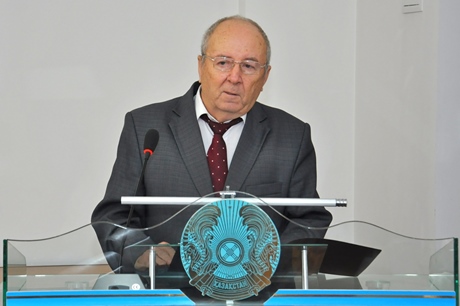A roundtable dedicated to the First President of the Republic of Kazakhstan Day was held at S. Toraighyrov Pavlodar State University.
The roundtable titled “President as the guarantor of political stability of the Republic of Kazakhstan” was organized by the Department of Management and Political Science of S. Toraighyrov PSU.
Professor of the Department of Management and Political Science, Candidate of Historical Sciences Eduard Yanchuk emphasized the leading role of the Nation’s Leader in strengthening of the state’s nationhood in his report. “The core and content of the complex activity of the country’s president on creating foundations of sovereignty and independence, forming sustainable society and determining future priorities of Kazakhstan at the modern stage of national history provide a good starting point for considering Nursultan Abishevich Nazarbayev as the founder of the present-day national identity of Kazakhstan recognized nationwide,” noted Eduard Tikhonovich.
In her speech, Candidate of Political Sciences, Associated Professor Meiramgul Altybassarova outlined the fundamental components of effective economic reforms.
Addressing the audience, the moderator of the roundtable, Candidate of Political Sciences, Professor Gani Yelmuratov expressed his confidence that “the polyethnic and multi-religious society of the Republic of Kazakhstan is demonstrating an excellent model of national unity and cohesion, fruitful cooperation of different ethnic groups to the whole world. “Meeting the challenges of today’s world: instability of world community, increased urgency of ethnic issues in times of their politicization, social justice issues occurring globally, people have to accurately form and implement ethno-confessional policy,” said Gani Zhumabayevich.
Participants of the meeting agreed that the strategy of independence presented by President N. A. Nazarbayev provided the basis for modernization of the today’s society of Kazakhstan and strengthening of sovereignty of the country under new world-conditions. The guests also agreed that “it is impossible to form prosperous polyethnic and multi-religious society without constant regulation of interethnic and interreligious interaction issues”.









